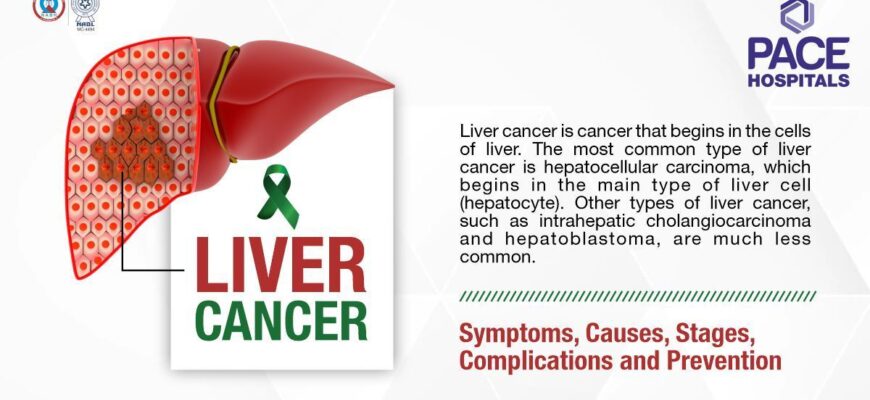Imagine a class of medications, long entrusted with the vital task of keeping our hearts beating steadily, now eyeing a new and far deadlier foe: liver cancer. Recent groundbreaking research suggests that compounds known as cardiac glycosides, commonly associated with cardiovascular health, possess a surprising and potent anti-cancer punch.
This revelation, stemming from collaborative efforts between scientists at the University of Mississippi and Suresh Gyan Vihar University (India), opens a promising new chapter in the relentless fight against hepatocellular carcinoma (HCC) – the most prevalent and aggressive form of liver cancer. Their findings, published in the journal Pharmacological Research — Natural Products (PRNP), spotlight a potential path to therapies that are not only effective but also potentially gentler on the body.
The Art of Repurposing: Old Dogs, New Tricks in Drug Discovery
In the vast, often arduous landscape of pharmaceutical development, the concept of drug repurposing is akin to finding a hidden superpower in an everyday item. Instead of spending years and billions of dollars developing a completely new molecule from scratch, researchers are increasingly looking at existing drugs. These compounds have already undergone extensive safety testing for their original indications, dramatically accelerating the path from lab to patient. It’s a pragmatic approach, offering efficiency in a field where time is often measured in lives saved and quality of life regained. Who knew a drug designed to mend a struggling heart might also hold the secret to dismantling cancerous growths?
Cardiac Glycosides: A Brief History and a New Mission
For centuries, nature has provided us with remarkable remedies. Cardiac glycosides are a prime example, famously derived from plants like the foxglove (Digitalis purpurea). Historically, they have been a cornerstone for treating conditions like congestive heart failure, working by strengthening heart muscle contractions. Their precise mechanism of action on the heart is well-understood, but their potential interaction with cancer cells remained largely unexplored in this context until now.
The research teams delved into the complex world of these natural compounds, hypothesizing that their intricate molecular structures might offer more than just cardiac benefits. As it turns out, the same compounds that help calm a struggling heart could also stir up trouble for rogue cancer cells – an unexpected, yet intriguing, turn of events.
Targeting the Enemy: How Glycosides Might Combat Liver Cancer
Liver cancer, particularly HCC, is a formidable adversary, often diagnosed at advanced stages with limited treatment options and a grim prognosis. The need for innovative, effective therapies is acute. To tackle this, the researchers employed a cutting-edge technique called network pharmacology – a sophisticated computational approach that allows scientists to analyze how drugs interact with multiple proteins and genes within the intricate biological networks of a disease.
Using network pharmacology, the scientists acted as digital detectives, sifting through complex data to identify how cardiac glycosides could specifically target pathways crucial for the survival and proliferation of liver cancer cells. They successfully identified five promising compounds capable of disrupting key mechanisms that cancer cells rely upon to grow and evade destruction.
This isn`t about a blunt-force attack, which often harms healthy cells alongside cancerous ones. Instead, it’s a more strategic dismantling of the cancer cell`s defenses, aiming to cut off its supply lines and cripple its ability to thrive. It’s a calculated strike rather than a scattergun approach, potentially leading to more targeted and less debilitating treatments.
The Natural Advantage: Fewer Side Effects?
One of the most compelling aspects of this discovery lies in the natural origin of cardiac glycosides. Medications derived from natural sources often exhibit a different side-effect profile compared to purely synthetic compounds. While all drugs carry inherent risks, nature-derived compounds can sometimes offer a more favorable balance, potentially leading to fewer severe adverse reactions than the grueling regimens of standard chemotherapy.
The prospect of new cancer treatments that are not only effective but also more tolerable could significantly improve the quality of life for patients battling liver cancer. It suggests a future where treatment might involve less suffering, allowing patients to maintain a semblance of normalcy during their arduous fight.
The Road Ahead: From Lab to Life-Saving Therapy
While this research is still in its foundational stages, primarily conducted in laboratory settings, it lays a vital groundwork for future clinical development. The next steps will involve rigorous preclinical testing, followed by human clinical trials, to confirm the safety and efficacy of these compounds in cancer patients.
This discovery serves as a powerful reminder that sometimes, the most revolutionary solutions are found not by building entirely new structures, but by re-examining the foundations we already have. It seems our hearts were holding a secret weapon all along; we just needed the right tools to uncover its potential. As we move forward, the hope is that these humble heart drugs could become a new beacon, bringing a gentle yet powerful counter-punch to one of humanity`s most persistent health challenges.








